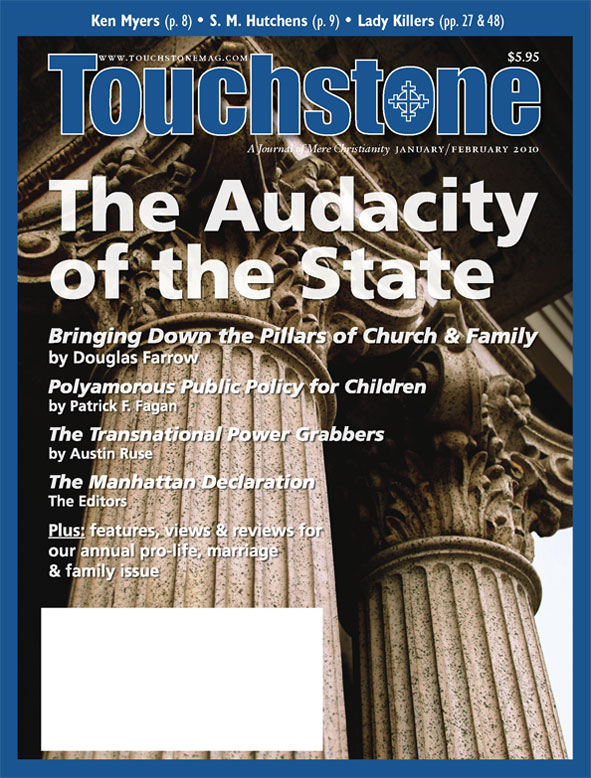Column
Metaphysical Dream Weaver
A look at Richard Weaver's Ideas Have Consequences
The white letters on the mocha-colored spine proclaimed—in bold, sans-serif type—Ideas Have Consequences. I saw the book on a shelf in 1984, in a bookstore in Philadelphia. The title echoed an aphorism I had heard before, but Richard Weaver’s name was unknown to me. I eagerly took the book off the shelf. It was less than half an inch thick with a remarkably austere design, altogether a deceptively modest package.
There was a blurb on the front cover from Robert Nisbet (whose work I did know). On the back cover, there were blurbs from Paul Tillich, Reinhold Niebuhr, and John Crowe Ransom. Those names I also knew. Tillich said that the book “will shock, and philosophical shock is the beginning of wisdom.” Niebuhr described the book as “a profound diagnosis of the sicknesses of our culture,” while Ransom said it was the best explanation of “the breakdown of modern man” that had appeared in many years. I was hooked before I opened the book.
Of course, these testimonies were echoes of an age—the book was published in 1948—when cultural malaise was still taken seriously by public intellectuals (and theologians taken seriously by the public). That time seems like ancient history to anyone under 50. In an essay last fall in The New Republic, Leon Wieseltier remarked that we are living in a cultural moment when public intellectuals cynically shun Big Ideas, when literary critics treat “heroic criticism” with disdain, and when allegedly serious writers practice a “relaxed whatever-ism,” displaying a “preference for the shrug over the frown. . . . And to what do we owe our exemption from grandeur, our release from gravity?” Wieseltier suggested that it was (among other things) the fashionable and almost unavoidable preoccupation in public life with fun and entertainment.
Sensation over Reflection
Weaver saw a much deeper source of the loss of moral seriousness: the decline of metaphysical realism and the loss of belief in universals. The world of ideas in which nominalists battle realists may seem arcane and abstract to most people, but it is at the level of worldview—what Weaver called our “metaphysical dream of the world”—that the breakdown of modern man was initiated. As the West abandoned fundamental ideas that had guided the classical and Christian worlds, “Man created in the divine image, the protagonist of a great drama in which his soul was at stake, was replaced by man the wealth-seeking and consuming animal.”
Our leading institutions serve the interests of such animals. As a professional journalist discovering Weaver’s point of view for the first time, I was particularly intrigued when I first read the book with his analysis of the way journalistic practices were both effect and cause of the sicknesses of modernity.
The rise of sensational journalism everywhere testifies to man’s loss of points of reference, to his determination to enjoy the forbidden in the name of freedom. All reserve is being sacrificed to titillation. . . . [O]ne of the great conspiracies against philosophy and civilization, a conspiracy immensely aided by technology, is just this substitution of sensation for reflection.
Later in the book, Weaver looks at the influence of movies on the soul of modern men and women and suggests that efforts to keep movies wholesome—the sort of concern that many Christians still voice—are missing the point. The “little breaches of decorum which fret bourgeois respectability and sense of security” are not the things that need to be reined in.
The thing that needs to be censored is not the length of the kisses but the egotistic, selfish, and self-flaunting here; not the relative proportion of undraped breast but the flippant, vacuous-minded, and also egotistic heroine. Let us not worry about the jokes of dubious propriety; let us rather object to the whole story, with its complacent assertion of the virtues of materialist society.
Apathy Mounting
Ken Myers is the host and producer of the Mars Hill Audio Journal. Formerly an arts editor with National Public Radio, he also serves as music director at All Saints Anglican Church in Ivy, Virginia. He is a contributing editor for Touchstone.
subscription options
Order
Print/Online Subscription

Get six issues (one year) of Touchstone PLUS full online access including pdf downloads for only $39.95. That's only $3.34 per month!
Order
Online Only
Subscription

Get a one-year full-access subscription to the Touchstone online archives for only $19.95. That's only $1.66 per month!
bulk subscriptions
Order Touchstone subscriptions in bulk and save $10 per sub! Each subscription includes 6 issues of Touchstone plus full online access to touchstonemag.com—including archives, videos, and pdf downloads of recent issues for only $29.95 each! Great for churches or study groups.
Transactions will be processed on a secure server.
more from the online archives
calling all readers
Please Donate
"There are magazines worth reading but few worth saving . . . Touchstone is just such a magazine."
—Alice von Hildebrand
"Here we do not concede one square millimeter of territory to falsehood, folly, contemporary sentimentality, or fashion. We speak the truth, and let God be our judge. . . . Touchstone is the one committedly Christian conservative journal."
—Anthony Esolen, Touchstone senior editor










